Bulldog: Breed Facts, Experience and Tips from 9K+ Owners

Discover the Bulldog, a breed celebrated for its friendly, loyal, and protective nature. Recognized as a medium dog, Bulldogs have their origins in England, where they were initially bred for originally bred for bull-baiting starting in the 13th century.
In this post, we share insights from nearly 10,000 Sniffspot users, offering practical advice for new and prospective Bulldog owners. Whether you’re considering adopting or rescuing a Bulldog or already have one, you'll find valuable tips on how to care for and enjoy life with a friendly Bulldog.
As Sniffspot user PB says, "They are very playful when they can be, but so chill when in a chill environment. They adapt well to their surroundings. Very loyal and cuddly."

Source: Sniffspot Community Breed Survey 2024
Bulldog Quick Characteristics
- Breed Type: Companion
- Size: Medium
- Life Expectancy: 8 - 12
- Healthy Weight Range: 40 - 50
- Height Range: 14 - 15
- Temperament: Friendly, Loyal, Protective
- Coat Type: Short
- Color: Brindle, fawn, white, and other combinations
About the Bulldog
According to nearly 10,000 Sniffspot community users who shared real-world data about their Bulldog, we learned that these dogs are friendly and loyal. The Bulldog is also known to be very friendly and social with children and very friendly with other pets.
When living with an English Bulldog, 61% of our owners indicated that a large house with a fenced yard is ideal. Additionally, 31% of owners found that a climate-controlled environment due to breed sensitivity is also acceptable. This dog is moderately trainable, often benefiting from a professional trainer and owners say that the Bulldog learns best with positive reinforcement, consistent routines, and behavior correction techniques.
In terms of exercise, 34% of Sniffspot owners say their Bulldog benefits from moderate exercise every day, including between 1-2 hours of activity each day, including walks and active play sessions. The Sniffspot English Bulldog community would not recommend this dog for first-time owners due to its unique health needs.
History and Origin of Bulldog
The Bulldog, originally known as the English Bulldog, has a history that dates back to the 13th century in England. Initially bred for bull-baiting, a cruel sport involving attacking a tethered bull, these dogs were prized for their tenacity and strength. The breed’s physical characteristics, such as its muscular build and pushed-in face, were developed to aid in this dangerous sport.
When bull-baiting was banned in 1835, the Bulldog's role shifted from a fighting dog to a companion animal. Breeders focused on tempering the breed’s aggressive traits, resulting in the more gentle and affectionate Bulldog we know today. The breed became a symbol of British courage and determination and has since become a beloved family pet worldwide, known for its distinctive wrinkled face and loyal nature.
Bulldog Traits and Characteristics
- Temperament: Friendly, Loyal, Protective
- Energy Level: Moderate
- Trainability: Moderately trainable - Learns commands with consistent training and practice.
- Grooming needs: Low maintenance - Requires minimal grooming, such as occasional brushing and baths.
- Good with Kids: Very friendly and social with children
- Good with Other Pets: Very friendly with other pets
What to Expect as a Bulldog Dog Owner
As a Bulldog owner, it's important to know the best dog breed tips and what to expect from current Bulldog owners.

Source: Sniffspot Community Breed Research 2024
Grooming Needs
Bulldogs require low maintenance but regular grooming. This means Bulldog owners should expect minimal grooming, like occasional brushing and baths. Bulldogs have a short coat, which is ideal for protection from the elements. Their short coat is considered moderate shed.
To keep your Bulldog's coat healthy and up to breed standards, include brushing in their daily routine and clean their wrinkles regularly to prevent skin infections. Of the coat types for common breeds in the companion group, the grooming needs for Bulldogs are relatively low maintenance.
Exercise Needs
Bulldogs require moderate activity each day. Though one of the most popular dog breeds, English Bulldogs are considered a very athletic, high-energy breed.
English Bulldogs make great pets and thrive with between 1-2 hours of activity each day, including walks and active play sessions. Owners of English Bulldogs report their dogs especially love tug-of-war, playing with squeaky toys, and chasing/playing with a ball or frisbee.
When medium breeds like English Bulldogs don't get sufficient exercise, they're more likely to act out with undesirable behaviors like stubbornness and reactivity. They need consistent training, mental activity, and regular moderate exercise to avoid excess energy.
Diet and Nutrition
What should you feed your Bulldog to keep them healthy? As a moderate energy breed, what you feed them is important. A reported 56% of our community feed their English Bulldog commercial dry kibble.
With moderate exercise, English Bulldogs should eat 1.5 to 2 of vet-recommended food to maintain a healthy weight around 40 - 50. However, your Bulldog's ideal weight and food depend on your pet's sex, activity level, and age.
Bulldog Health Concerns
The Bulldog breed is most prone to skin conditions (e.g., allergies, dermatitis) and joint problems (e.g., hip dysplasia, arthritis). A reported 59% of our Bulldog owners reported skin conditions like allergies, yeast infections, impetigo, ringworm, alopecia, and folliculitis. English Bulldog's risk for these challenges increases as they age.
Similarly, 39% reported joint problems like arthritis, elbow dysplasia, degenerative issues, and osteosarcoma. Lastly, 32% of Bulldog owners claim their dog struggles with digestive issues like constipation, diarrhea, vomiting, and lack of appetite — a common English Bulldog health concern. If you're worried about any of these health issues above, talk to your English Bulldog's vet.
How Friendly Are Bulldogs?
Another important thing to consider when adopting an English Bulldog is whether or not they fit with your current family. How friendly are Bulldogs compared to other medium-sized breeds?

Source: Sniffspot Community Breed Survey 2024
With moderate training, you can hone your English Bulldog's companion instinct into a friendly and loyal family dog. Introducing your pet to positive reinforcement (treats, praise, rewards) and consistent daily training routines early helps them avoid undesirable behaviors like stubbornness and reactivity. Our community Bulldog owners comment on their pet's friendliness:
- They are not good listeners. They're bossy and chew on everything. Clingy. Maintaining their health is expensive. (Christina)
- Heart problems, breathing problems, and can easily have heat stroke so these are indoor dogs. (Elizabeth D)
- She has a ton of health problems and is verrrrry expensive. (Laura)
How to Train Your Bulldog
Whether you're adopting an English Bulldog puppy or an adult Bulldog, training is a significant part of owning a medium-sized breed. Without proper training, your English Bulldog is more likely to display undesirable behaviors such as stubbornness and reactivity. Providing stimulating activities is a great first step, but this needs to be paired with the right training for your English Bulldog.
As a companion breed, Bulldogs benefit from praise and positive reinforcement. Here's what our English Bulldog community recommended based on their experience with their own dogs:
- Positive Reinforcement (85%): This includes treats, praise, rewards, and so on for positive behavior
- Consistent Routines (42%): A consistent training routine allows your pet to get comfortable with expectations
- Behavior Correction Techniques (34%): Behavior correction techniques include time outs, desensitization, counter-conditioning, and more
As dogs bred for bull-baiting, English Bulldogs are considered moderately trainable, often benefiting from a professional trainer.
 Sébastien L. on Unsplash
Sébastien L. on Unsplash
What Do Owners Love About Bulldogs?
We asked Sniffspot English Bulldog owners what they love the most about their Bulldog pups, and here's what they had to say:
- They have the biggest personality of any breed I've ever met. They're goofy and fun and sassy, basically people in a dog's body. Bulldogs just want to be included in whatever their people are doing. Going sailing? Get a doggie life jacket. Hiking? Bring extra water. Watching a movie? Best snuggle buddies around. (HK)
- So much personality. Very entertaining, loyal, and snuggly. (Christina)
- They’re snuggly and sweet. They’re easy to bring places or travel with due to size. (Kylie)
What Are the Biggest Challenges for Bulldog Owners?
Similarly, English Bulldog owners shared some of the biggest challenges of living with their Bulldogs:
- We adopted our Bulldog and don’t know her history, but she is hypervigilant, guarded, aggressive, and is anxious. (BMS)
- Compared to other breeds, this dog is not very smart. (Jessica)
- The stereotypes people have about bulldogs being lazy couch potatoes. People are so used to seeing obese, untrained, and badly bred bulldogs that they don't believe my dog is actually healthy, they assume he's underweight or can't possibly be a purebred bulldog. People tend to get bulldogs because they want a lazy dog, they overfeed it and do nothing with it and create lazy bulldogs. And the surge in exotic bulldogs perpetuates the stereotype that bulldogs all have health problems. An ethically well-bred bulldog won't have the laundry list of issues people assume bulldogs have now. (HK)
Is a Bulldog Right for a First-Time Dog Owner?

Source: Sniffspot 2024 Community Dog Breed Survey
According to 53% of our Sniffspot community, Bulldogs are not a great first-time dog. This comes from their complex medical needs. Bulldog owners say it best:
- Their health restrictions can be difficult to navigate. You have to be very conscious of temperatures, foods, and potential allergens with the breed. They can also be very stubborn as well! (Kylie C)
- These dogs have a lot of health issues, including allergies, ear infections, skin issues, breathing problems, and hip issues. (Vanessa)
- Due to being a brachycephalic breed, overheating is a possibility. Heat plays a major role in when we can do things. (Amanda)
Advice for Bulldog Owners
Luckily, our Sniffspot community is full of experienced, trustworthy English Bulldog owners. These Bulldog breed owners share the most essential dog breed tips and advice for prospective or new dog owners:
Be mindful of their stubbornness!
- Be patient with training! Bulldogs can be stubborn, but ultimately they want to please their human and they are willing to do the work. (Jamie)
- Prepare for health issues down the line. (Emily)
Prepare for health issues down the line.
- Make sure to go to checkups regularly. Research your breed and get educated— and that can also go for any breed. People do not understand that bullies have many health issues not only is it a costly breed but also health issues are costly depending on your dog. (Gracie Mae)
- Be ready for the medical bills. They are so loving and cute, but they sometimes have such a hard time breathing. Finding a good food that helps with their sensitive bellies. A food that helps with their skin allergies. Tail pocket and wrinkle infections. You will be spending a lot of time cleaning them! And you need to make sure you have air conditioning. These poor guys don't do heat. (Kl)
Have a safe, temperature-controlled environment for them.
- Do your research and make sure you can support taking care of vet bills because they will happen more often than other breeds. Also make sure you can provide them with the proper living accommodations with temperature control, mental stimulation activities, and attention. Frenchies love their owners and would not do well living somewhere if their owners were not home all day. (Kylie C.)
- Be ready for the medical bills. They are so loving and cute, but they sometimes have such a hard time breathing. Finding a good food that helps with their sensitive bellies. A food that helps with their skin allergies. Tail pocket and wrinkle infections. You will be spending a lot of time cleaning them! And you need to make sure you have air conditioning. These poor guys don't do heat. (Kl)
Maintain their coat and skin folds.
- They require a lot of maintenance with their face folds and ears. Ensure that this maintenance is kept up. (Vanessa)
- Make sure you have extra money for monthly medications, ear infections, and skin allergies. These dogs cannot handle heat well at all and need to be kept inside during the summer most of the time. She can't go for long walks as she has trouble breathing. Be prepared for a velcro dog that always wants to be on your lap. Ours loves being pampered and does well with being brushed, groomed, nails trimmed, etc. Make sure you have a dog stroller so you can take your dog on longer walks. Ours is the absolute sweetest and most easygoing dog. A lot of time is spent cleaning out her wrinkles and tail pocket, etc. (Laura)
Frequently Asked Questions about the Bulldog
What is the average lifespan of a Bulldog?
The average lifespan of a Bulldog is typically between 8 - 12 years.
What is the size of a Bulldog?
An adult Bulldog weighs between 40 - 50 pounds and stands between 14 - 15 inches tall.
How much grooming does a Bulldog need?
Bulldogs require low-maintenance grooming. Regular grooming helps to keep their coat healthy and manageable. Bulldogs have a short coat, which is well-suited for protection from the elements. They are considered moderate shedders.
To maintain your Bulldog's coat, it's important to clean their wrinkles regularly to prevent skin infections. Among companion breeds, Bulldog grooming is categorized as relatively easy.
How much exercise do Bulldogs need?
Bulldogs require moderate activity each day. Though one of the most popular dog breeds, English Bulldogs are classified as a moderately athletic, somewhat high-energy breed.
English Bulldogs are excellent companions and thrive with between 1-2 hours of activity each day, including walks and active play sessions. Owners of English Bulldogs note that their dogs particularly enjoy tug-of-war, playing with squeaky toys, and chasing/playing with a ball or frisbee.
If medium breeds like English Bulldogs don't receive enough exercise, they may develop unwanted behaviors. These dogs need ongoing training, mental stimulation, and consistent exercise to channel their energy effectively.
How friendly are Bulldogs with children?
According to our data, Bulldogs are very friendly and social with children with children.
How well do Bulldogs get along with other pets?
Our research indicates that Bulldogs are very friendly with other pets with other pets.
What should you feed your Bulldog to keep him healthy?
As a moderate energy breed, the diet of your English Bulldog is crucial. A significant 56% of our community feed their English Bulldog commercial dry kibble.
For optimal health, English Bulldogs should consume 1.5 to 2 cups of vet-recommended food to maintain a healthy weight around 40 - 50 pounds. The exact amount and type of food will depend on your Bulldog's sex, activity level, and age.
What health concerns are common for Bulldogs?
The Bulldog breed is particularly prone to skin conditions like allergies, yeast infections, impetigo, ringworm, alopecia, folliculitis, and joint problems like arthritis, elbow dysplasia, degenerative issues, and osteosarcoma. Our data shows that 59% of Bulldog owners reported skin conditions like allergies, yeast infections, impetigo, ringworm, alopecia, and folliculitis. English Bulldog's risk for these health issues increases as they age.
Additionally, 39% reported joint problems like arthritis, elbow dysplasia, degenerative issues, and osteosarcoma. Finally, 32% of Bulldog owners indicated their dog struggles with digestive issues like constipation, diarrhea, vomiting, and lack of appetite, which are common English Bulldog health concerns. If you have concerns about any of these health issues, consult your English Bulldog's veterinarian.
Resources for Bulldog Owners
Whether you're a current Bulldog dog owner or you're considering adopting an English Bulldog, Sniffspot is here to lend a helping hand. Here are some of the most relevant resources for Bulldog owners.
Sources:
Most recent articles
Related articles
Top dog guides per area
Dog training guides

Dog Food Aggression: Why You Shouldn't Punish It
Does your dog ever growl when you walk by their food dish? Maybe they get possessive of treats, carrying them far away and giving you side-eye when you start to approach — or snarling at your other pets or children if they get too close.

Scent Training for Dogs: A Beginner's Guide
As almost every dog owner is aware, the nose of a dog is an amazing thing. Just as they can pick up sounds we can’t hear, their sense of smell and ability to pick up scents is well beyond ours. In fact, dogs have 40 times the number of olfactory receptors as humans.

Service Dog Training Costs: DIY vs. Pro
More than 80 million Americans rely on their service dogs to help them navigate the world. Task-trained assistance animals perform a huge range of life-changing—in many cases, life-saving—services: These dogs act as eyes for visually impaired handlers, provide mobility support, alert to seizures and blood sugar crashes, interrupt anxiety attacks, remind their people to take medications, and so much more.

How to Deal With Puppy Potty Training Regression
You thought those dreaded middle-of-the-night potty breaks were over. You were finally free from cleaning up puppy puddles. Then, suddenly, your furry friend starts having accidents again. It's frustrating, right? This puppy potty training regression is more common than you think. Don't worry; we'll help you get your pup back on track. We'll cover the common causes, offer practical solutions, and give you actionable steps to tackle this challenge together.

Dirty Dog Syndrome: Causes, Solutions, and Prevention
It's a cringe-worthy moment every dog owner dreads: your furry friend chowing down on something truly disgusting. If your dog has a penchant for poop, you're dealing with coprophagia. It's more common than you think, and thankfully, often manageable. This article explores the reasons behind dirty dog syndrome, from instinct to learned behavior. We'll also give you practical tips to help break this unpleasant habit.
Dog enrichment guides

Top 10 Dog Water Parks in the US
Do you have a water-loving dog looking to burn some energy? There are countless dog parks to visit throughout our country — but some of them become far too hot in the midday sun to be safe for your pets to play. That’s why we’ve put together a list of some of the best dog water parks throughout the United States! At these locations, your pup can frolic, splash, and swim to their heart’s content.

Best Toys for Herding Dogs: Keeping Your Pup Happy & Engaged
Herding dogs are amazing, intelligent companions. But that also means they need more than just a simple game of fetch. Finding the right toys for herding dogs is key to keeping them happy and stimulated. This article explores some of the best toys for herding dogs, including options specifically for breeds like Border Collies and Australian Shepherds. We'll help you discover the perfect herding toys for dogs to tap into their natural instincts and keep them entertained for hours.

Ultimate Guide: Dog Toys for Aggressive Chewers
Does your dog destroy every toy you give them? Is your house littered with remnants of fabric and stuffing of all different sizes? Are you tired of investing in “indestructible” toys only for your pup to still dismantle—or worse, get bored of—them in just a few days?

Daily Exercise Calculator: How Much Exercise Does Your Dog Need?
Everyone knows dogs need exercise, but how much is enough? Walks are great, but creating a truly balanced fitness plan means understanding your dog's specific needs. This post helps you develop a daily exercise calculator for your dog, considering breed, age, and lifestyle. We'll cover fun activities, understanding exercise intensity, and recognizing when your pup has had enough. Let's create a plan that keeps your dog happy and healthy!

Complete Guide To Herding With Dogs
* All Sniffspot articles are reviewed by certified trainers for quality, please see bottom of article for details *
Dog reactivity guides

Rottweiler Aggression: Truth vs. Myth
Many dogs have gotten a bad reputation over the years for being "dangerous breeds." Rottweilers are among them. Like pit bulls and other large, blocky-headed types of dogs, these powerful and beautiful animals are often assumed to be aggressive.

What Is a Reactive Dog? A Practical Guide for Owners
Does your dog suddenly transform into a barking, lunging Tasmanian devil on walks? It's stressful for both of you. If this sounds familiar, you might have a reactive dog. Understanding what is a reactive dog is the first step to calmer walks. We'll explore the common triggers and give you actionable strategies to manage and modify this behavior. Let's turn those stressful walks into enjoyable outings.

How to Socialize a Reactive Dog: A Step-by-Step Guide
Does your dog display reactivity to other pets or people? Maybe they’re a new rescue pup and are still settling into your home. Or they were sick growing up, so you missed their critical socialization period. Possibly they’ve had a bad experience after being raised as a normal puppy.

What Is a Reactive Dog? A Complete Guide
Is your dog overly excited or fearful around other dogs? Do they bark, lunge, or whine? You might have a reactive dog. Many dog owners face this challenge. Understanding what a reactive dog is is the first step to helping them. This guide explores the common causes of dog reactivity, explains what makes a dog reactive, and offers practical tips and resources. Let's work together to build a stronger bond with your dog and enjoy stress-free walks.

Best Online Dog Training for Reactive Dogs: A Practical Guide
Does your dog's reactivity make walks stressful? You're not alone. Many dog owners face similar challenges. This guide offers practical advice and support for managing reactivity, including finding the best online dog training for reactive dogs. We'll connect you with reactive dog support groups, share training tips, and explore resources like the best dog training app for reactive dogs. Let's build a stronger bond with your dog, together.
* All Sniffspot articles are reviewed by certified trainers for quality, please see bottom of article for details *
Sniffspot community guides

The State of Public Dog Parks Across the United States
From 2009 to 2020, there was a 40 percent increase in the development of public dog parks. Designated spots for canine exercise have become commonplace in every major city in North America — many pet owners won’t even consider renting an apartment that doesn’t have its own fenced-in pet area for their canine companions.

How This Family is Affording Their Dream Property Through Renting it Hourly to Dogs
Thousand Oaks, California has been a safe haven for Sniffspot host, Jen, since childhood. Having grown up in busy Santa Barbara, Jen, an introvert from an early age, would seek out solitude and serenity away from tourists attractions and droves of people visiting from elsewhere. “My grandparents own 60 acres about a 30 minute drive from here, and I grew up spending every summer and every holiday visiting them on the ranch,” Jen explained. “In Santa Barbara, we wouldn't go to the beach on the weekend because that's where everybody was, so you'd find places off the beaten path where the tourists weren't. For me, the ranch was just my happy place.”

Host Tips: Ellen K. What Makes Sniffspot Successful for Me
Ellen is the host of Country Pasture Getaway, one of Sniffspot's most popular sniff spots. She has taken the time to write up the lessons she has learned about how to be a great sniff spot host.

How this Oregon Farmer is Making a Business From Renting Her Land to Dogs
Just 20 minutes outside of the busy city of Portland, Oregon, and settled right on the banks of the Columbia River, you’ll find what countless visitors have flocked to the area in search of – mountain views, crisp, clean air, and running water for miles. What you might not expect to find, however, is a hidden oasis designed just for dogs and their people, owned and operated by a farming couple and enjoyed by visitors on two legs, and four.

Host Tips: Fran T. Providing Great Guest Service at our Spot
Fran is the host of Ranch Setting, one of Sniffspot's most popular spots. She has taken the time to write up the lessons she has learned about how to be a great Sniffspot host.
Top dog trainers in the US
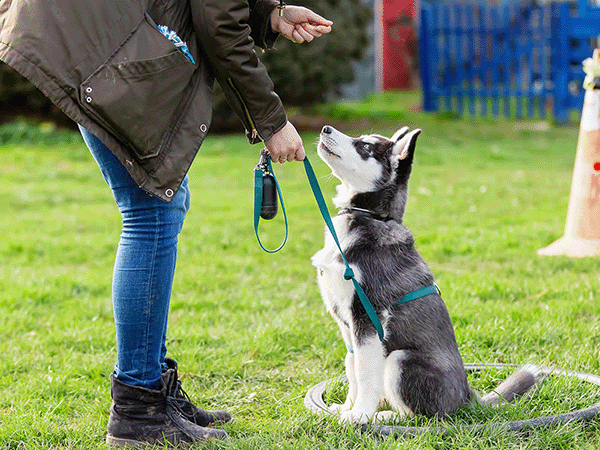
The Best Dog Trainers in the United States of 2025
This is a list of the top dog trainers in the United States, based on votes from the Sniffspot community and the general public.
The Best Dog Trainers in Seattle, WA of 2025
This is a list of the top dog trainers in Seattle, WA, based on votes from the Sniffspot community and the general public.
The Best Dog Trainers in Portland, OR of 2025
This is a list of the top dog trainers in Portland, OR, based on votes from the Sniffspot community and the general public.
The Best Dog Trainers in Los Angeles, CA of 2025
This is a list of the top dog trainers in Los Angeles, CA, based on votes from the Sniffspot community and the general public.
The Best Dog Trainers in New York, NY of 2025
This is a list of the top dog trainers in New York, NY, based on votes from the Sniffspot community and the general public.
City dog parks guides

Top 10 Indoor Dog Parks: A US Guide
Looking for a space to play with your dog no matter what the weather’s like outside? Look no further than our list of the best indoor dog parks in the United States! These climate-controlled spaces are growing in popularity as pet ownership increases throughout the country. As a bonus, many of them also offer dog training, boarding, grooming, or daycare services on the premises.

15 Best Dog Parks in the US: Public & Private
Searching for the best off-leash dog parks near you in the United States? Whether you're looking for public dog parks with open spaces or private, fully-fenced areas, this comprehensive guide has you covered. Discover top-rated parks across the country, plus essential tips on what to bring and what to expect for your next adventure.

Dog Parks Near Me: Las Vegas Edition
Looking for the perfect dog park near me in Las Vegas? You're in luck! This guide explores all the best options for your pup, from public dog parks to private dog parks near me on Sniffspot. We'll help you find the ideal spot for playtime, socializing, and fresh air. Plus, we'll cover essential etiquette and safety tips to ensure a happy visit for everyone. Get ready for some tail-wagging fun!

Top Sniffspot Locations: Find the Perfect Dog Park
Looking for the perfect dog park? Whether you need a wide-open public space or a private, fenced-in spot, this guide will help you find the best dog parks across the US. We'll cover top-rated public parks, the perks of private dog parks, and even explore Sniffspot locations – giving your pup a safe and fun place to play. Ready to find your dog's new favorite spot? Let's go!

Sniffspot: Portland's Best Private Dog Parks
Ready to discover Portland's best dog parks? Whether you're looking for a public park or the unique experience of a private Sniffspot, this guide has you covered. We'll help you find the perfect spot for your pup, with tips on what to bring, how to prepare, and even understanding dog body language. Plus, we'll explore some top Portland dog parks, including public and Sniffspot options, so you can plan your next dog-friendly adventure in the City of Roses.
Dogs breeds

German Shepherd Dog: Breed Facts, Experience and Tips from 9K+ Owners
Discover the German Shepherd Dog, a breed celebrated for its intelligence, loyalty, and versatility. Known for its impressive size and smooth, graceful movements, German Shepherds excel in various roles, including as guide, therapy, bomb detection, and police dogs, while being a devoted family companion.

Labrador Retriever: Breed Facts, Experience and Tips from 9K+ Owners
Discover the Labrador Retriever, a breed celebrated for its playful nature, affectionate temperament, and trainability. Labradors are known for their friendly demeanor and adaptability, making them perfect family companions and versatile working dogs. As one of the most popular types of retrievers, Labs are ideal companions for various lifestyles and are recognized by the American Kennel Club (AKC) as an excellent breed for families.

Golden Retriever: Breed Facts, Experience and Tips from 9K+ Owners
Discover the Golden Retriever, a popular breed celebrated for its affectionate, playful, and trainable nature. Considered a large dog, Golden Retrievers were originally bred in Scotland for hunting and retrieving game beginning in the 1860s. Today, they're recognized by the Kennel Club and the American Kennel Club (AKC) as one of the most beloved companion dog breeds.

American Staffordshire Terrier: Your Complete Guide
Think American Staffordshire Terriers are tough? Think again. While their muscular build might intimidate some, these dogs are known for their playful and loyal personalities. This guide draws on the experience of nearly 10,000 AmStaff owners to reveal the truth about this often misunderstood breed. Want to learn more about caring for an American Staffordshire Terrier? You're in the right place.

Australian Shepherd Facts: Breed Info & Care Guide
Discover the Australian Shepherd, an AKC breed celebrated for its trainable, playful, and affectionate nature. Despite its name, the Australian Shepherd is actually a native breed to the United States, originally developed to breed on farms and ranches. Considered a medium dog, Australian Shepherds were bred for herding beginning in the 1950s. As one of the high-energy breeds, Aussies are known for their boundless energy and need for regular exercise, including aerobic exercise.
Top dog names in the US
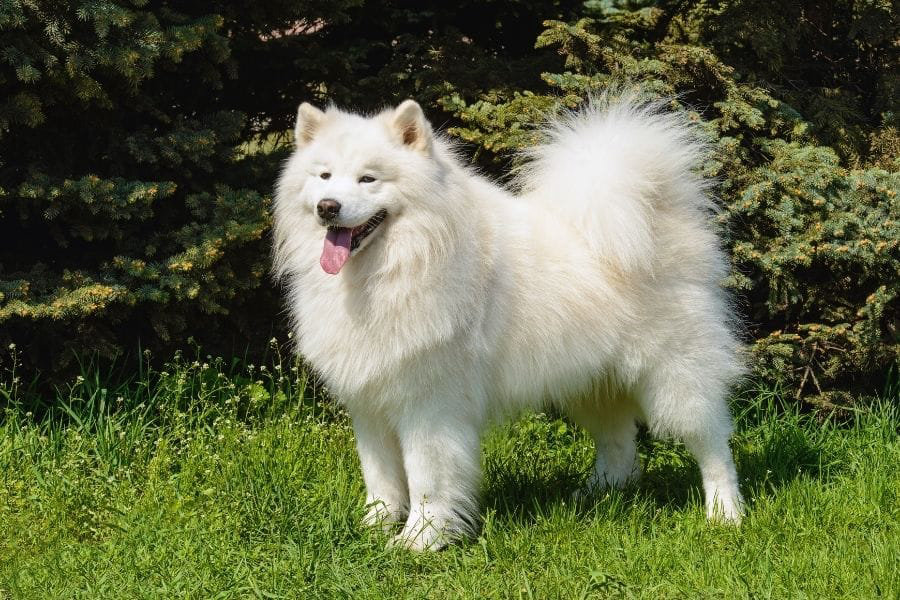
Top 1,000 Most Popular Dog Names
Looking for the perfect dog name for your new pup? We have created filterable lists of dog names from our database of hundreds of thousands of Sniffspot users. You can filter by gender, breed and state to find the most cute, unique and creative dog names.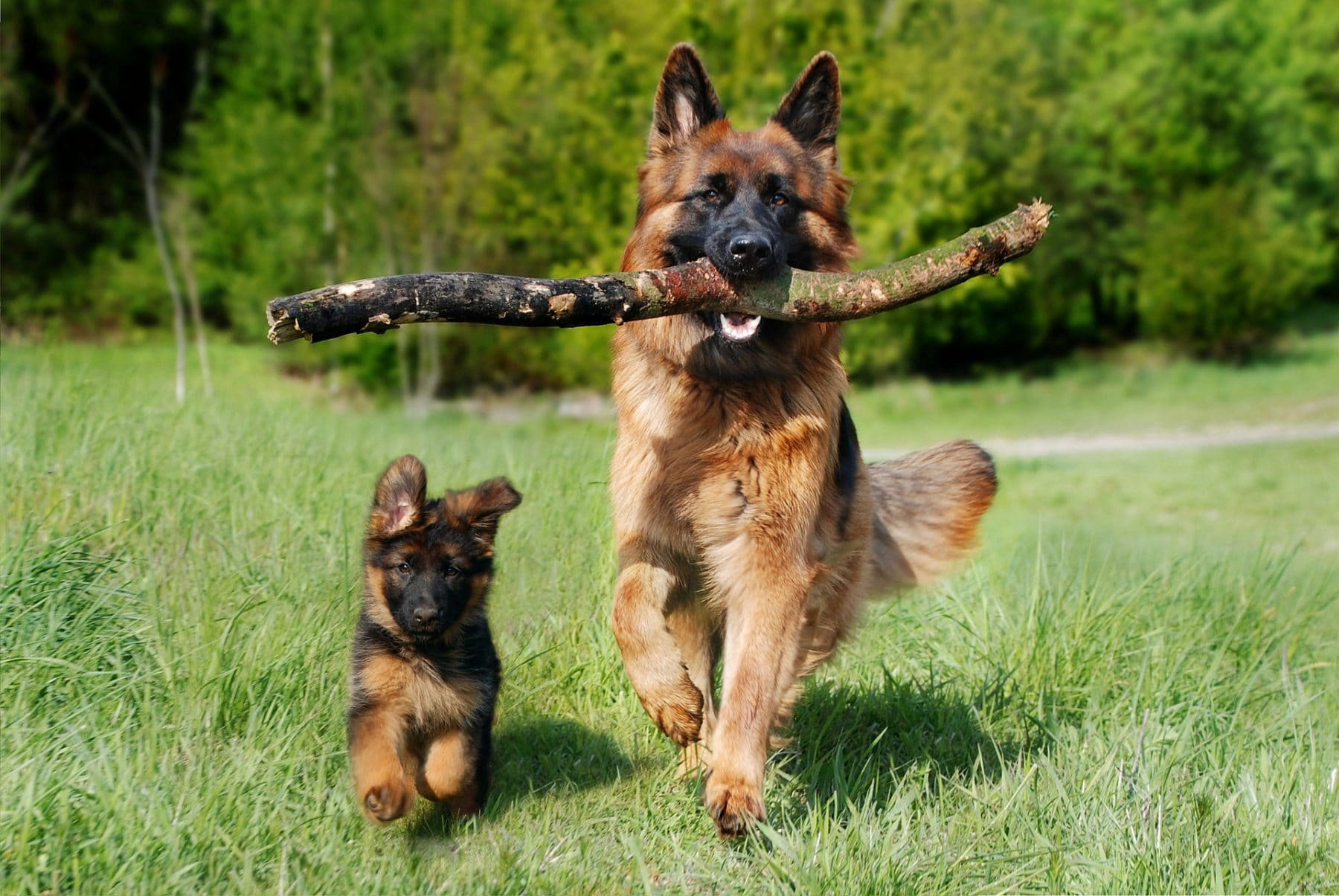
Most Popular Male Dog Names
Looking for the perfect dog name for your new male pup? We have created filterable lists of male dog names from our database of hundreds of thousands of Sniffspot users. You can filter by gender, breed and state to find the most cute, unique and creative male dog names.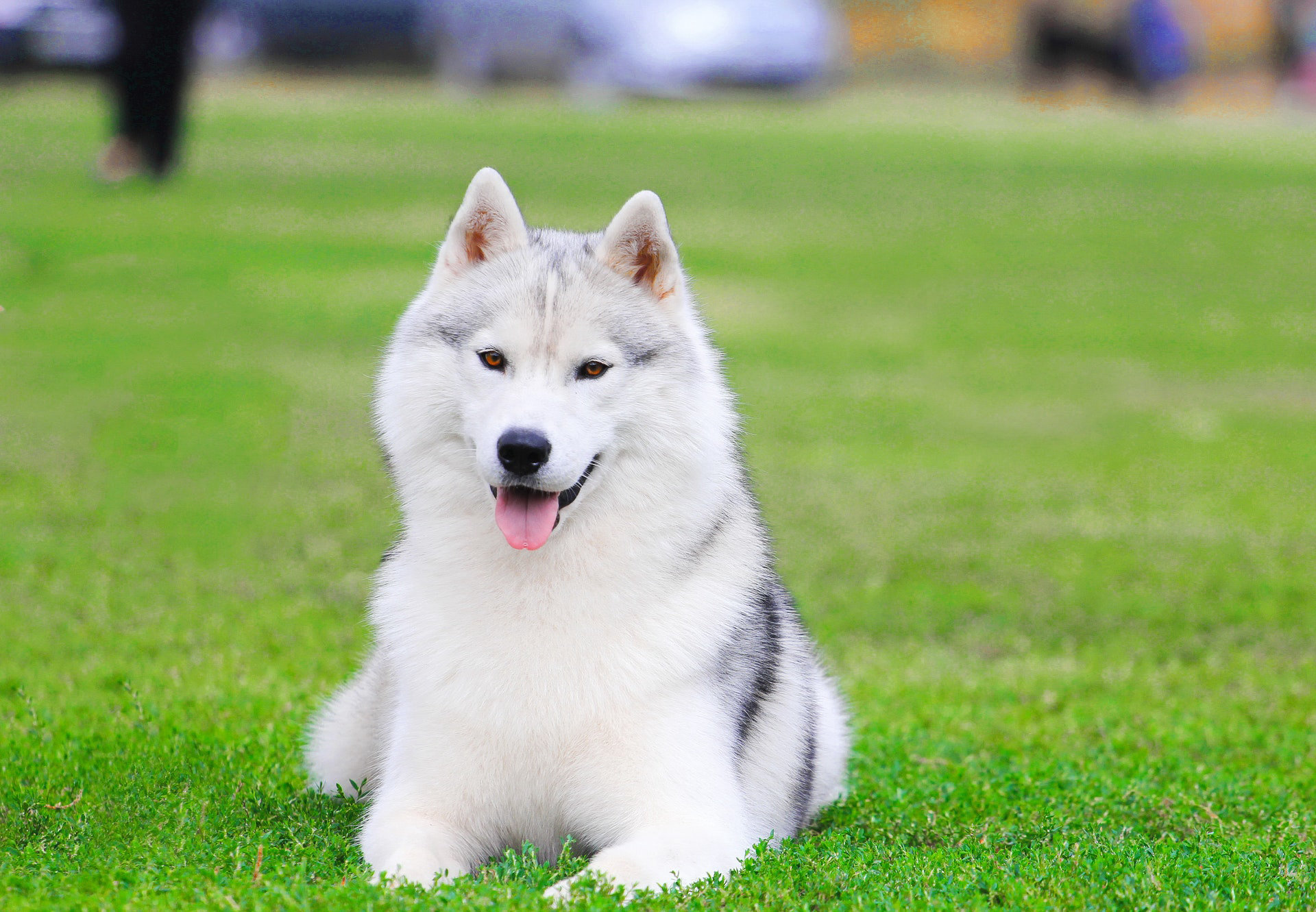
Most Popular Female Dog Names
Looking for the perfect dog name for your new female pup? We have created filterable lists of female dog names from our database of hundreds of thousands of Sniffspot users. You can filter by gender, breed and state to find the most cute, unique and creative female dog names.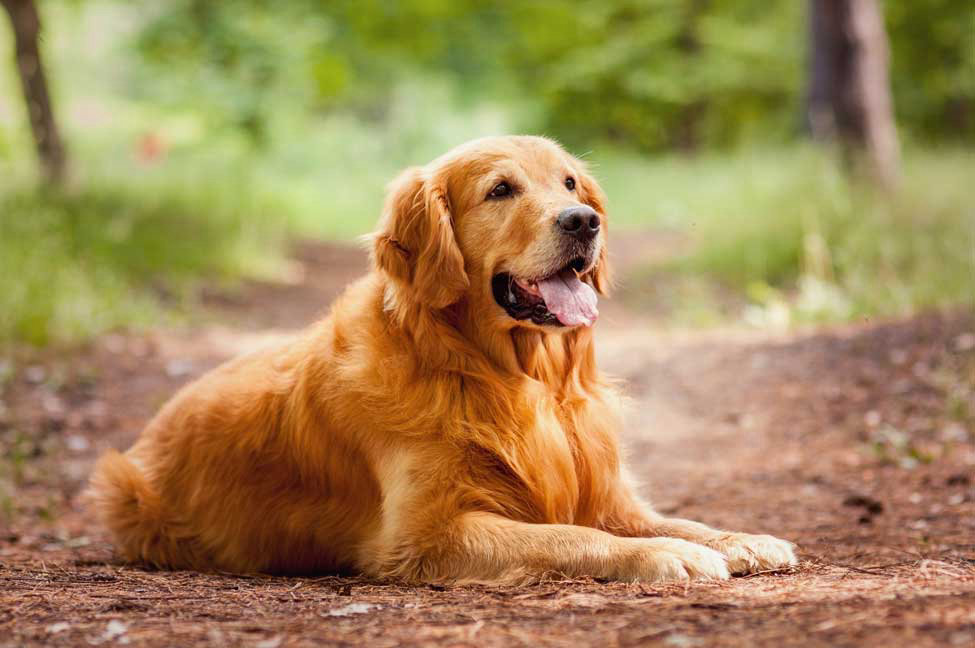
Most Popular Golden Retriever Names
Welcome to our comprehensive list of Golden Retriever dog names, curated from our vast database of Sniffspot users. Filter through hundreds of thousands of options by gender, breed, and state to discover the most adorable, original, and imaginative names for your beloved Golden Retriever.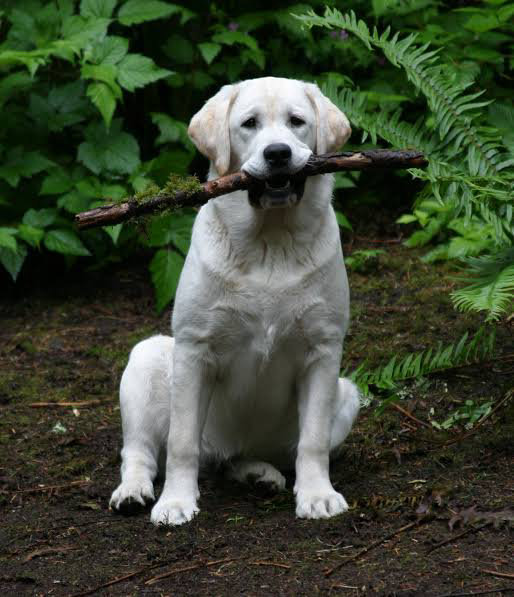
Most Popular Labrador Retriever Names
Welcome to our Labrador Retriever dog names page! Here you can browse through filterable lists of names for your beloved furry friend, ranging from cute and classic to unique and creative options. Our database of hundreds of thousands of Sniffspot users ensures you'll find the perfect name for your Labrador Retriever, whether you're seeking a name for a male or female, based on breed or state.
Top dog rescues in the US

The Best Washington Dog Rescues & Shelters in 2025
This list showcases the top dog rescues & shelters in Washington. These remarkable organizations have been recognized for their unwavering dedication to the well-being of countless dogs.
The Best Oregon Dog Rescues & Shelters in 2025
This list showcases the top dog rescues & shelters in Oregon. These remarkable organizations have been recognized for their unwavering dedication to the well-being of countless dogs.
The Best California Dog Rescues & Shelters in 2025
This list showcases the top dog rescues & shelters in California. These remarkable organizations have been recognized for their unwavering dedication to the well-being of countless dogs.
The Best Florida Dog Rescues & Shelters in 2025
This list showcases the top dog rescues & shelters in Florida. These remarkable organizations have been recognized for their unwavering dedication to the well-being of countless dogs.
The Best New York Dog Rescues & Shelters in 2025
This list showcases the top dog rescues & shelters in New York. These remarkable organizations have been recognized for their unwavering dedication to the well-being of countless dogs.



























